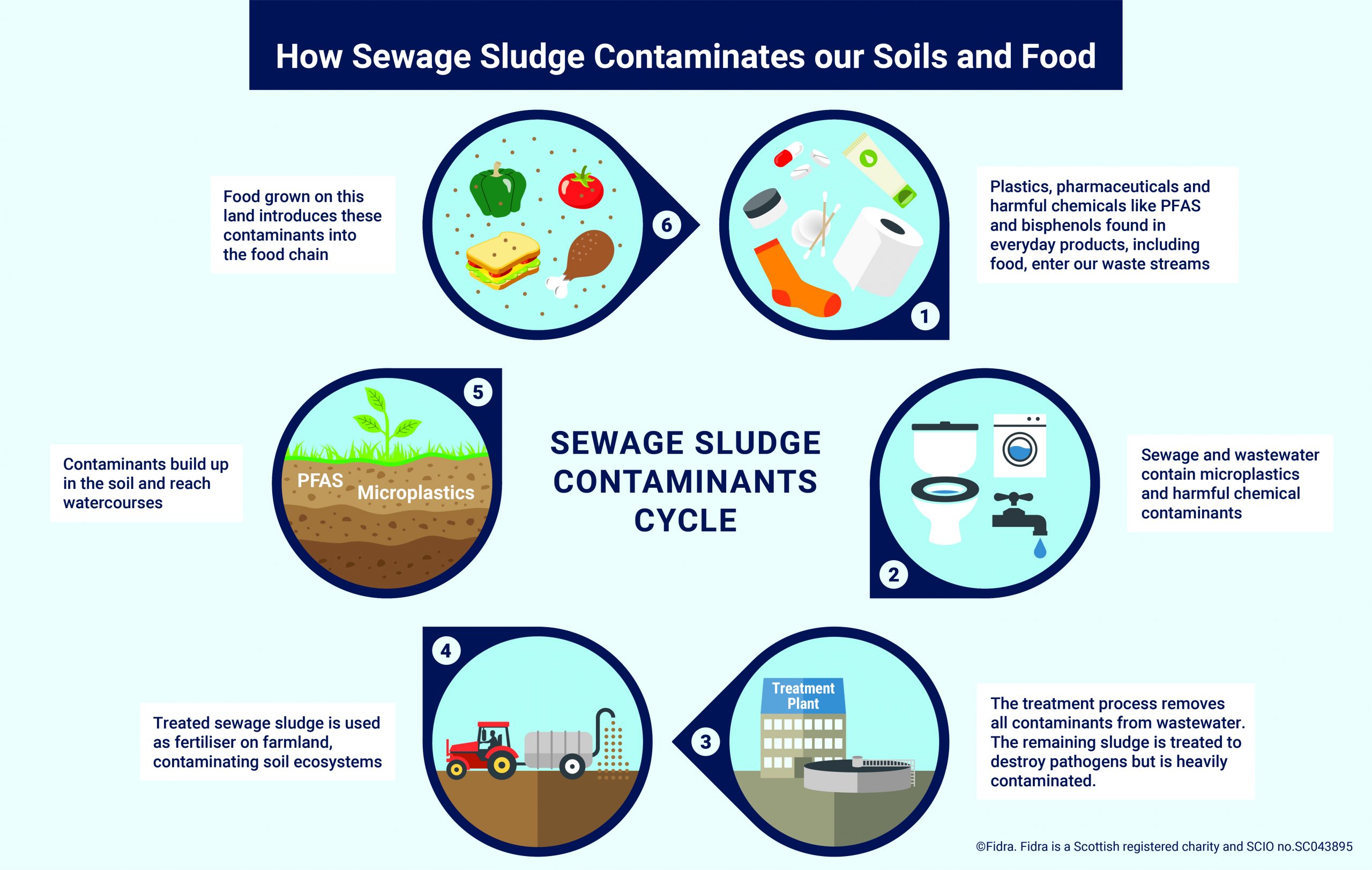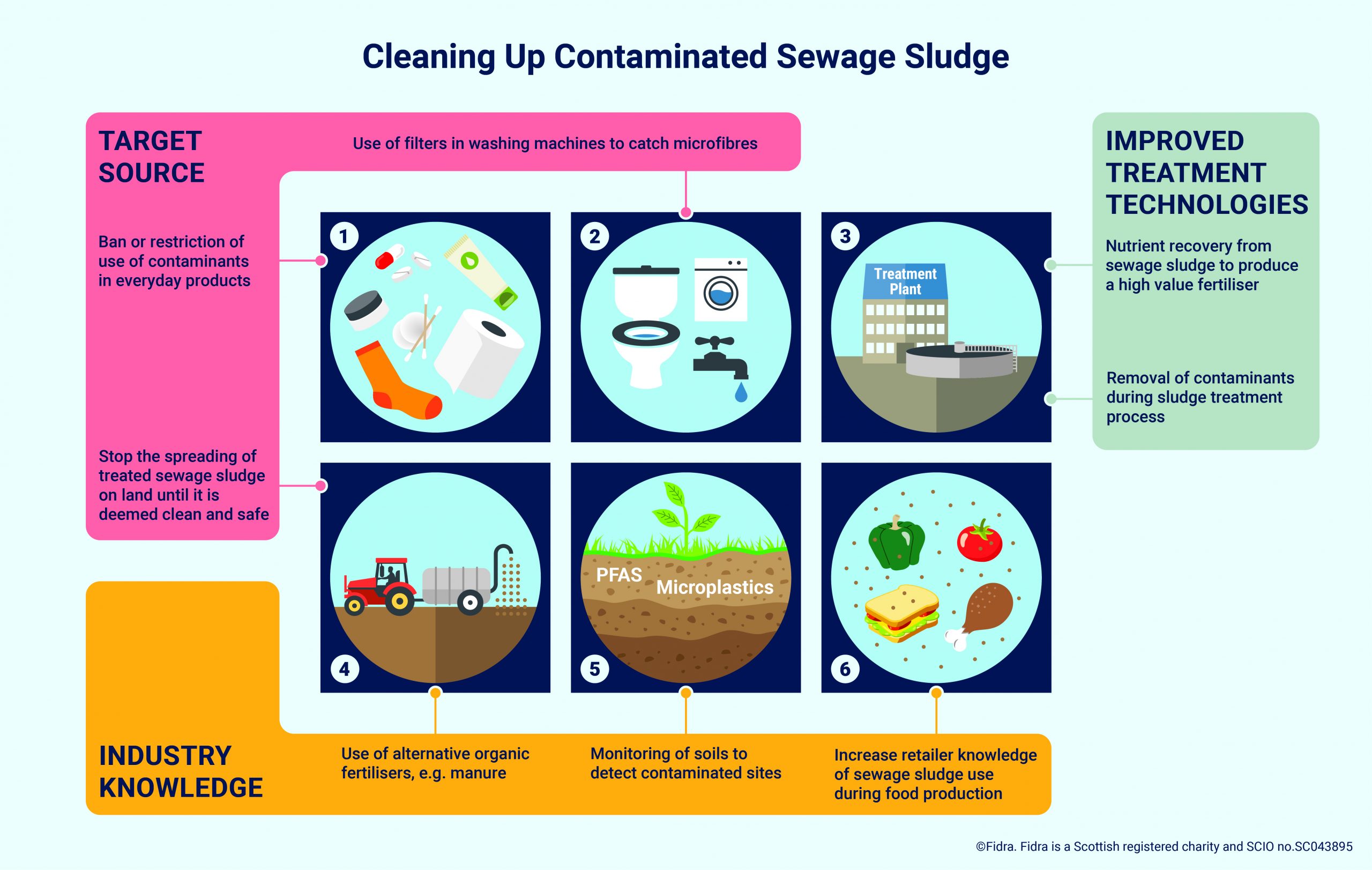A FIDRA PROJECT
Soil Health
Around 60% of Scotland’s treated sewage sludge is applied to agricultural soils. The sludge contains harmful plastic and chemical contaminants damaging our soils. Our agricultural soils are a finite resource, essential in climate regulation and a biodiverse habitat in their own right – one quarter of the world’s biodiversity is found in soils. The health of these soils is vital, so their protection from harmful contaminants is crucial.
Contaminated sewage sludge has a negative impact on the survival rate of earthworms – a vital organism for healthy soil
THE PROBLEM
Sewage sludge contains a complex mixture of chemicals and microplastics, inevitably impacting soil health.
The occurrence of potentially harmful organic contaminants such as ‘forever chemicals’ PFAS, endocrine-disrupting bisphenols and pharmaceuticals is particularly problematic as they are almost impossible to remove during sludge treatment processes.
A common disposal route for treated sewage sludge is its application to productive agricultural soils.

THE SOLUTION
Fidra are calling for an end to sewage sludge application to agricultural land until it can be proven to be a clean and safe resource.
We are wanting to reduce the contamination of sewage sludge at source by addressing the excessive and unnecessary uses of chemicals and plastic.
Preventative action is necessary and has already been taken in many countries in the EU. Scotland should strive to follow suit to ensure our soils are healthy, biodiverse, and productive for future generations.
We believe that halting agricultural use of sewage sludge products until such a time that contaminant levels are acceptable in sewage sewage sludge and the final sewage sludge product is fit for use as a beneficial nutrient and organic matter-rich soil amendment.

OUR ASKS
Scottish/UK Government – We recommend that Government strategies consider investing in upgrading and future-proofing their sewage management systems (e.g., utilising nutrient recovery technologies).
Farmers and landowners – Commit to reducing the application of treated sewage sludge to land, focusing instead on alternative fertilisers.
Water industry, local authorities and regulators work together to improve current sewage sludge agricultural use and practices.
Currently, sewage sludge acts as a sink for persistent chemicals removed from wastewater during treatment
WHAT WE HOPE TO ACHIEVE
Communicate available and emerging scientific evidence around the impacts of contaminated sewage sludge on soils and the wider environment.
Work with stakeholders to explore viable solutions for tackling overlooked sewage sludge contaminants (upstream and downstream).
Until proven to be a beneficial resource, investigate alternatives to agricultural use of contaminated sewage sludge.
Secure our future vision of having healthy productive soils and a safe, clean circular economy.

